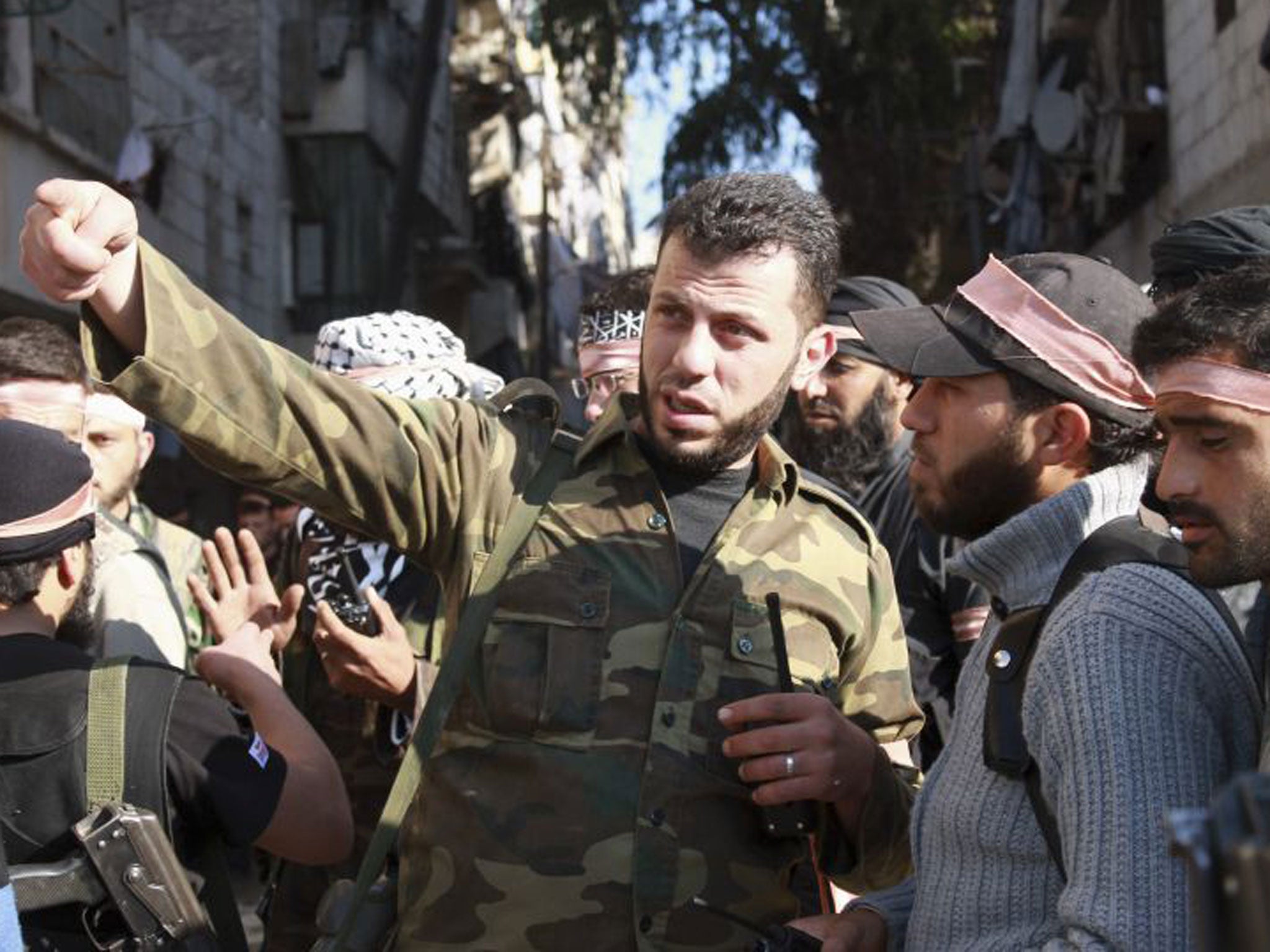EU set to buy oil from anti-Assad rebels after lifting Syrian embargo

Your support helps us to tell the story
From reproductive rights to climate change to Big Tech, The Independent is on the ground when the story is developing. Whether it's investigating the financials of Elon Musk's pro-Trump PAC or producing our latest documentary, 'The A Word', which shines a light on the American women fighting for reproductive rights, we know how important it is to parse out the facts from the messaging.
At such a critical moment in US history, we need reporters on the ground. Your donation allows us to keep sending journalists to speak to both sides of the story.
The Independent is trusted by Americans across the entire political spectrum. And unlike many other quality news outlets, we choose not to lock Americans out of our reporting and analysis with paywalls. We believe quality journalism should be available to everyone, paid for by those who can afford it.
Your support makes all the difference.A crude oil embargo placed on Syria by EU member states has been eased in a move that will allow the purchase of the natural resource from areas held by groups opposing the rule of President Bashar al-Assad.
Foreign ministers meeting in Luxembourg today said the decision to allow European companies to import crude oil from the opposition will “help the civilian population”.
The main Syrian opposition alliance, the National Coalition, will have to approve each transaction, and it is thought oil will have to be transported by tanker to Turkey and Iraq. But analysts believe security concerns and badly-damaged infrastructure will complicate the process.
Meanwhile, the full scale of the bloodshed caused by days of heavy fighting in the Damascus countryside began to emerge today, with claims that hundreds had been killed – including women and children – in an army operation to seize back control.
Both the Syrian regime and the opposition reported that a major offensive had taken place in the town of Jdaidet al-Fadel, just southwest of the capital. Opposition activists said that the death toll in what it described as another “massacre” could be more than 450, while the government said it had cleansed the area of “terrorists”.
If the figures are confirmed, they would represent a sharp spike in deaths as the conflict enters its third year and one of the heaviest from a single military operation. The UK-based Syrian Observatory for Human Rights (SOHR) reported that March was the bloodiest month for the civil war so far, with about 6,000 killed in a conflict that has claimed more than 70,000 lives.
Details of what exactly unfolded in the area are difficult to verify. Opposition accounts said the area was surrounded and shelled before troops moved in conducting house-to-house raids, arrests and summary executions, a pattern familiar from previous regime operations on rebel-held districts. Both sides tonight said that the area had fallen back into the hands of the army.
The suburb lies just south of the district of Daraya, which rebels have clung on to despite attempts to root them out. It was the scene of similar mass-killings in September.
The SOHR said it had confirmed at least 101 deaths –including 10 women and three children, though it warned that figure could climb to 250. The Local Coordination Committees of Syria said 483 had been killed, and that the majority died in nearby Jdeidat Artouz. One pro-regime website reported that 600 had been killed, saying the victims were members of Jabhat al-Nusra, a rebel group that has been designated a terrorist organisation by the United States.
British Foreign Secretary, William Hague, said he was “appalled” by the reports of the scores of deaths. “This is yet another reminder of the callous brutality of the Assad regime and the terrible climate of impunity inside Syria,” he said.
Join our commenting forum
Join thought-provoking conversations, follow other Independent readers and see their replies
Comments